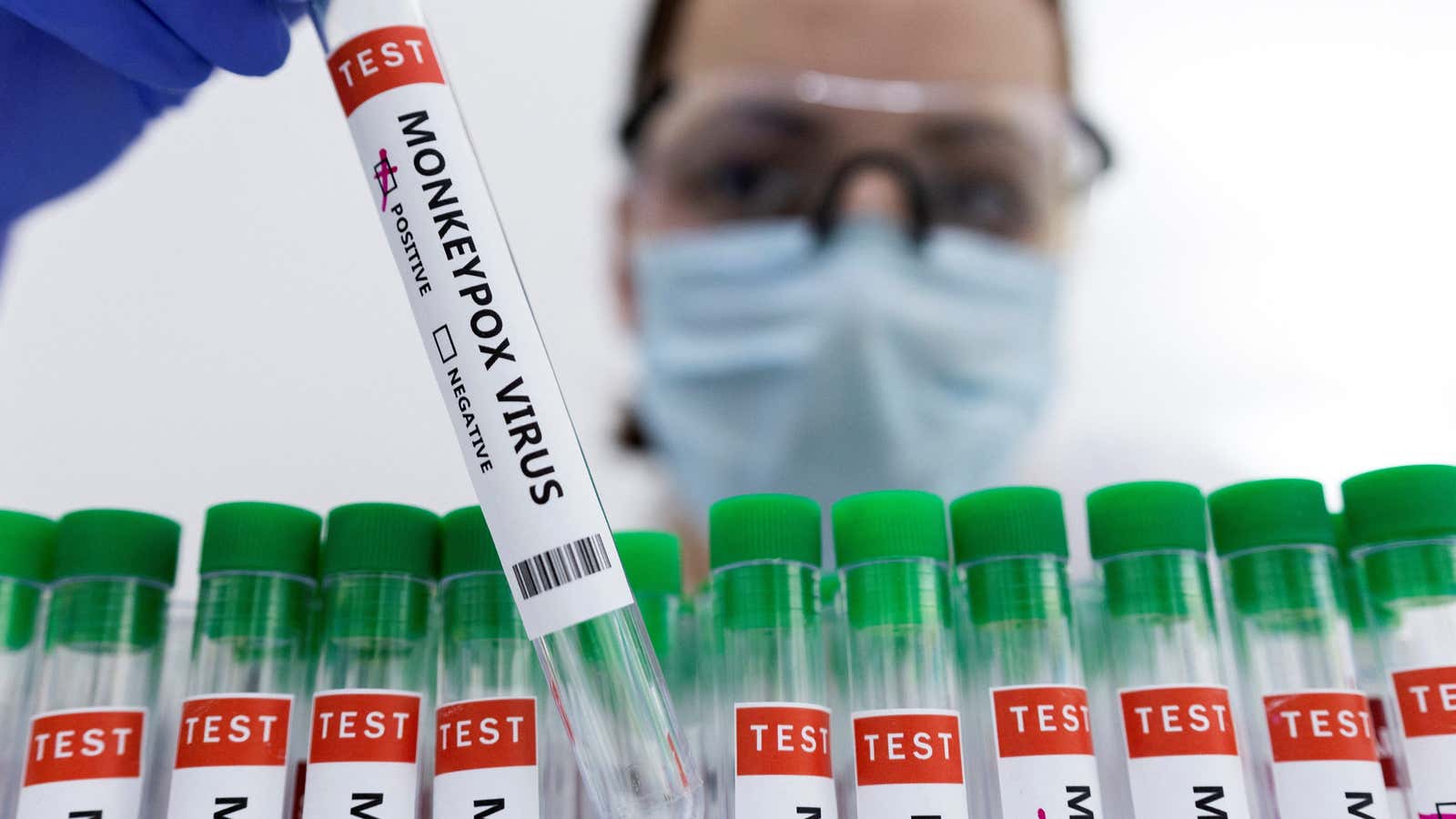Cases of monkeypox continue to crop up around the world. According to the World Health Organization (WHO), at least 27 countries, mainly in Europe and North America, have confirmed cases. Other reports have found confirmed cases in more than 30.
The situation isn’t necessarily going to evolve into a pandemic, but there are some worrying signs. Perhaps the main point of concern is that not all cases appear related, and some isolated cases have no clear connection to an existing outbreak. This points to a tracing problem, and suggests that many linking cases are going undetected.
The lack of coordinated tracking efforts coupled with test shortages have made tracing a major problem during a covid pandemic in all but a handful of countries, undermining efforts to locate and isolate outbreaks. Letting monkeypox escape thorough surveillance could be the difference between containing the spread and a pandemic. Monkeypox has been endemic in parts of Africa for decades, but there isn’t fast testing for it, and detecting the virus is limited to lab analysis. Currently, only a few labs have the capacity to run tests to detect monkeypox, although this may change soon.
Diagnostics companies are racing to develop new monkeypox tests
A person who suspects having a case of monkeypox (for instance, after noticing skin lesions) should contact a doctor, who can then contact one of the labs with equipment for testing for orthopoxviruses. Experts recommend labs testing for monkeypox from swabs and lesion tissue specimens.
The test doesn’t confirm monkeypox per se, but just the presence of an orthopoxvirus. Given the current situation, the assumption is that it’s monkeypox, and the protocol is to isolate the individual for up to 21 days. Should cases rise significantly, more specific testing would be needed to confirm the virus is actually monkeypox and not one of its relatives.
Testing capacity for monkeypox at the moment is limited, yet sufficient to meet the current demand. In the US, about 70 labs in 46 states have the capacity to test for orthopoxviruses, the virus family to which monkeypox belongs, with a test cleared by the Food and Drugs Administration (FDA). In total, these labs can process about 7,000 tests a week.
While this is enough for the time being, diagnostics companies are already racing to develop faster tests for monkeypox, and have announced plans to roll out PCR tests for researchers, in order to increase the capacity.
Covid tests—both PCR and rapid antigen tests—proved lucrative for their makers. Swiss diagnostics company Roche, for instance, made about $2 billion in revenue from tests in the first quarter of 2022, and is expected to make $3 billion in the whole year. Its US-based competitor Abbott is projected to make $4.5 billion in revenue from covid tests this year.
Both companies are now working on PCR monkeypox tests, as demand for covid testing is expected to fall, although it is very unlikely that monkeypox testing will be anywhere near as big a business. Monkeypox is transmitted through direct contact with a symptomatic person’s sores and skin or bodily fluids, so it’s much easier to avoid than an airborne virus, and it doesn’t provide the opportunity for the type of widespread and frequent testing that has been recommended with covid.
Several Chinese companies are developing tests, too, as is US-based diagnostic company Tetracore, which is working on an antigen rapid test. Hopefully, test kits to take outside a lab won’t be necessary to deal with the current outbreak, but they could be helpful in countries where monkeypox has been, and remains, endemic.
